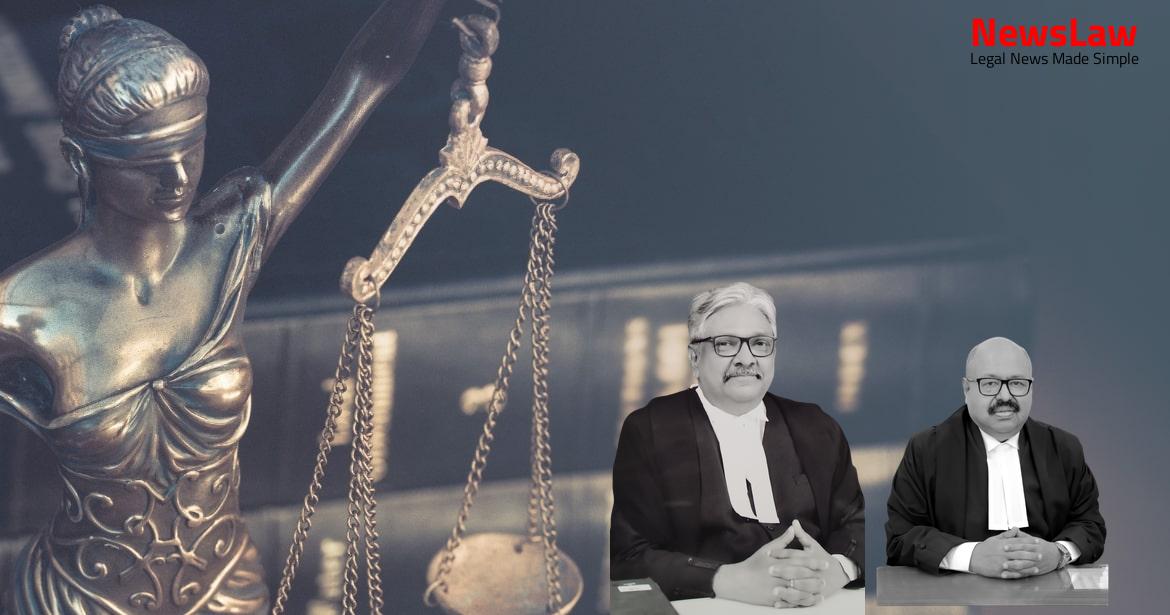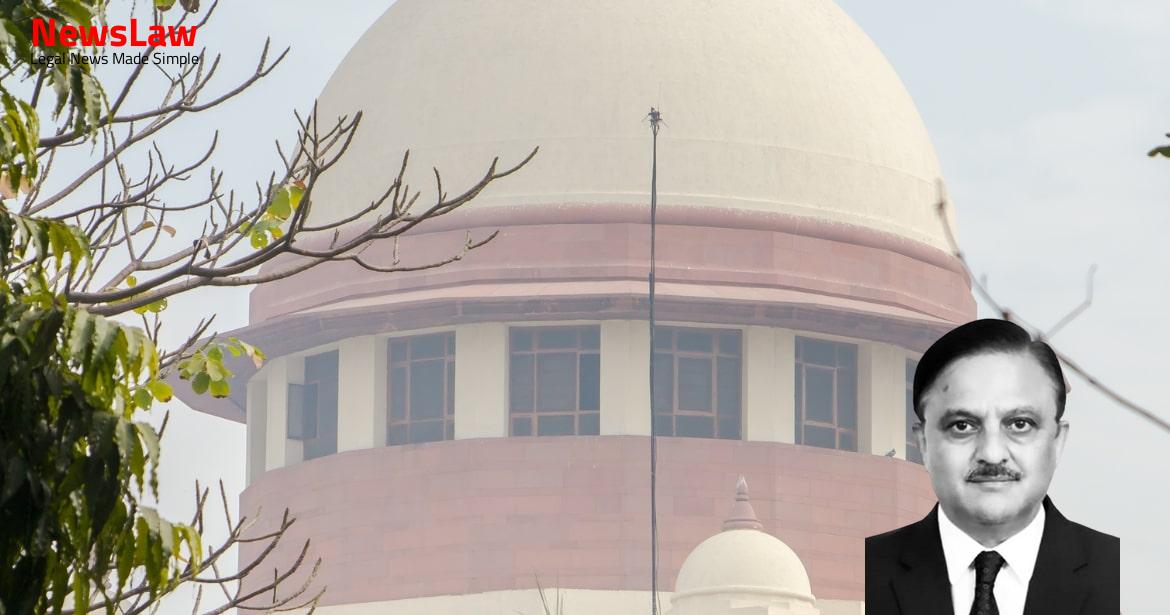In a significant legal case, the Supreme Court of India addressed the issue of equivalency of educational qualifications in the context of Instructors’ appointments. The State Government’s rejection of the appellant’s candidature was challenged, leading to an insightful ruling on educational standards. The judgment sheds light on the interpretation and application of circulars issued by the Ministry of Labour & Rehabilitation and the State Government. Discover more about this crucial decision on educational qualifications in the appointment of Instructors.
Facts
- An advertisement was issued for various posts of Instructors in the Government Industrial Training Institute of the State.
- The appellant applied for the post of Instructor in the subject of Fitter based on his educational qualifications.
- The appellant’s educational qualifications included basic training, further training in Fitter General, and further training in Metrology and Engineering Inspection.
- The appellant was found ineligible for the post as he did not possess a two-year course from NCVT.
- The High Court dismissed the writ petition filed by the appellant.
- The reason for dismissal was that the three different courses undertaken by the appellant were not considered equivalent to the qualification prescribed under the Rules.
- The appellant relied on a Circular issued by the Ministry of Labour & Rehabilitation, Government of India, dated 16 December, 1983.
- The Circular provided equivalency between various disciplines under Restructured Pattern and Conventional Pattern of the Craftsmen Training Scheme.
- According to the Circular, a candidate with a basic course in Mechanical Trade of one year, Fitting General Module of six months, and Metrology and Engineering Inspection Module of six months was considered equivalent to a Fitter with two years of training.
Also Read: Interpretation of Mandatory Statutory Time Limits
Arguments
- State Government issued directions on 18 August, 1988 for considering the eligibility of training obtained from MITI, Haldwani for services and posts under State Government.
- Circular dated 9 April, 1992 stated that the certificate in Fitter Trade of two years from MITI, Haldwani is equivalent to the National Trade Certificate.
- The appellant argued that the qualification obtained in three modules is equivalent to the Fitter Trade of two years as per the Circulars issued on 18 August, 1988 and 9 April, 1992, making the appellant eligible for the post of Fitter.
- Learned counsel for the State filed an additional affidavit to explain the three Circulars relied upon by the appellant.
- The State’s counsel clarifies the basis of the Circulars brought up by the appellant.
- This additional affidavit aims to provide further understanding and context regarding the Circulars in question.
Analysis
- The eligibility condition for the candidate is to possess a certificate in the respective trade from NCVT.
- The State Government, through Circulars issued earlier, has recognized equivalent educational qualifications.
- Possession of a qualification as prescribed in the Rules does not have to be in one certificate.
- The State has considered the qualification in Mechanical Trade Fitter as being equivalent to the conventional Craftsmen Training Scheme.
- The State’s contention that the appellant lacks the required educational qualifications is not valid.
- The contention that the appellant does not meet the qualifications mentioned in the Uttar Pradesh Industrial Training Institutes (Instructors) Service Rules, 1991, as amended in 2003, is challenged.
- Circulars from 1983, 1988, and 1992 stating equivalence will hold true unless amendments are made in the Rules for Instructors’ appointments in the State.
- Rule 8 of the amended Rules lists the academic qualifications required.
- The Circular from the Government of India in 1983 sets specific conditions.
- Circulars by the State Director on equivalent qualifications to the National Trade Certificate have been issued based on the Government of India Circular.
- The candidature of the appellant was rejected due to lack of educational qualification.
- State government is directed to appoint the appellant within two months
- The rejection of the appellant’s candidature was deemed invalid
- The State’s claim that the appellant lacked educational qualification was unsustainable
Also Read: Challenging Legal Analysis in Acquittal Reversal
Decision
- The appeal is allowed
- The decision of the Respondent No 1 is set aside
- The Petitioner No 1’s argument is upheld
- The RPC aspect of the judgement is being summarized
Case Title: RAJESH KUMAR DWIVEDI Vs. STATE OF UP
Case Number: C.A. No.-009140-009140 / 2019



